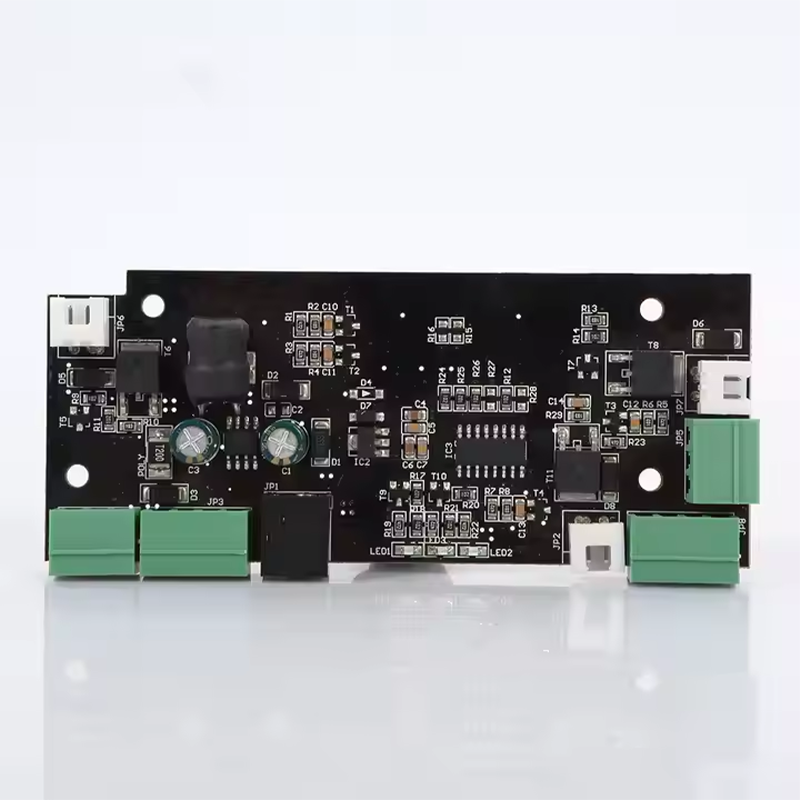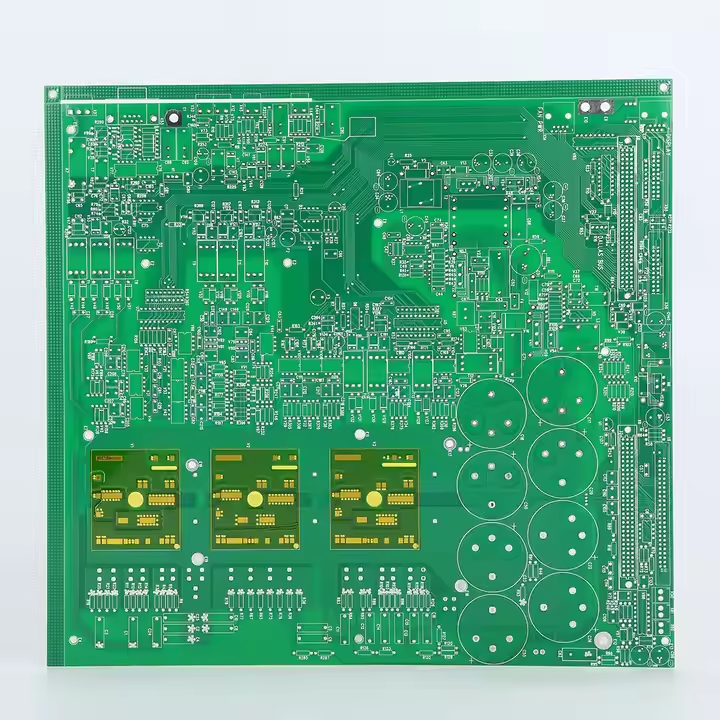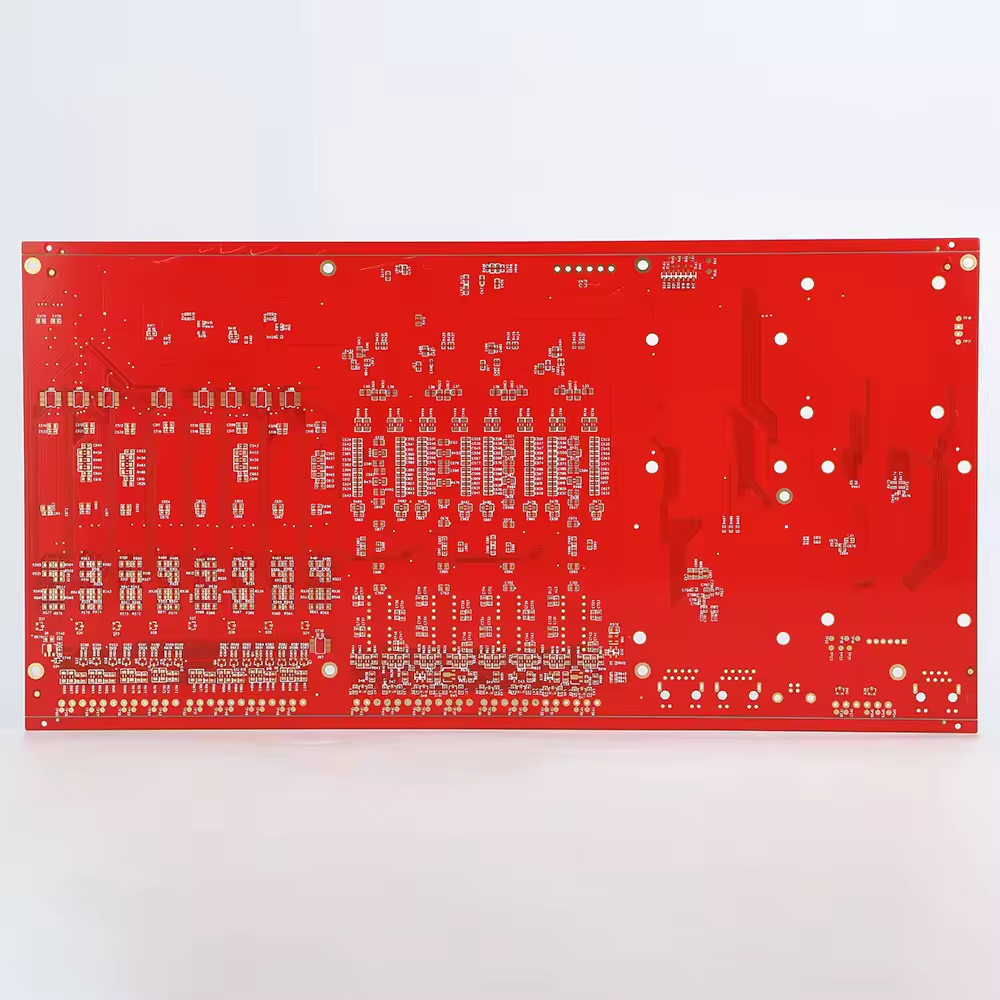Quality in PCB manufacturing is vital to ensure the reliability and functionality of printed circuit boards (PCBs), involving stringent standards in design, materials, and processes. Ensuring high quality means that each board must meet specific criteria established by industry bodies such as IPC, focusing on adherence to specifications, defect rates, and the overall robustness of the finished product. For instance, using Statistical Process Control (SPC) helps monitor and enhance manufacturing processes by minimizing waste and defects, ultimately contributing to superior product quality. As the integrity of a PCB directly influences the performance of the end product, emphasis on rigorous quality control measures cannot be overstated.
PCBs, or printed circuit boards, are the basic structures on which electronic components are mounted, whereas PCBA, or printed circuit board assembly, refers to the process where these components are soldered onto the PCB. This distinction is critical for assessing quality, as PCBA blends the quality attributes of both the PCB and the components attached. Remarkably, studies have shown that around 60% of electronic failures trace back to issues in the assembly process, underscoring the importance of maintaining quality in both PCB and PCBA stages. The role of PCB assembly in securing end-product quality emphasizes the need for careful execution and scrutiny in this step of the manufacturing process.
The selection of appropriate materials like FR4 and copper thickness is crucial in PCB manufacturing. FR4 is widely used due to its excellent dielectric properties and thermal stability. Furthermore, copper thickness directly affects the electrical performance of printed circuit boards, as research has shown. For instance, using a thicker copper layer, such as 2 oz instead of 1 oz, can significantly improve heat dissipation and reduce resistive losses, resulting in enhanced reliability and functionality. However, it's essential to balance material choice with cost implications and the durability demands of harsh environments.
Precision specifications are vital in ensuring PCB and PCBA reliability, as they dictate the tolerances and dimensions critical to performance. Tighter tolerances, such as adhering to ±0.1 mm for high-performance applications, help minimize malfunctions and extend device lifecycles. Adherence to industry standards in precision can significantly affect the overall quality of the product. Though this may increase initial production costs, it substantially reduces warranty claims and boosts customer satisfaction by enhancing product longevity and reliability.
Surface finishes play a crucial role in protecting PCB's copper surfaces against oxidation while ensuring solderability. Options like ENIG, HASL, and OSP are popular choices. These finishes offer robust corrosion resistance, which is particularly vital in environments exposed to moisture and harsh chemicals. Such protection helps to prevent long-term failures. Studies indicate that employing an effective surface finish can reduce solder joint defects by over 30%, thereby significantly enhancing the quality of PCB assemblies in various applications.
High-speed 3D automated optical inspection (AOI) systems are revolutionizing quality control in PCB manufacturing. By using advanced imaging technologies, these systems detect even the smallest defects that may be difficult to spot manually. This precision in defect detection significantly raises quality control standards. For instance, AOI systems can inspect at speeds up to 1200 cm² per second. This rapid inspection capability not only shortens the total inspection time but also enhances throughput, leading to more efficient manufacturing processes and higher-quality products.
AI-driven assembly is transforming PCB manufacturing by integrating machine learning to optimize processes and enhance quality. These systems adapt intelligently to design and material changes, ensuring PCBAs meet evolving specifications without delays. Evidence suggests that the integration of AI in the manufacturing process can boost efficiency by up to 30%, which significantly reduces production costs while improving quality assurance. This technology is particularly beneficial for complex applications where precision and adaptability are crucial, allowing manufacturers to stay competitive in an increasingly demanding market.
The SC-PCBA001 Multilayer PCB offers precision and reliability crucial for high-frequency applications across advanced electronic systems like telecommunications. Engineered with meticulous manufacturing protocols and featuring a robust FR4 base material, it supports the demands of various industries by ensuring exceptional performance. Multilayer designs, such as the SC-PCBA001, can significantly reduce the PCB footprint—by up to 50%—when compared to traditional single-layer configurations, thereby optimizing space and efficiency. The SC-PCBA001's superior specifications cater to the complex requirements of today's advanced systems, making it a vital component in high-performance applications.

The SC-003 Multilayer PCB is built with a focus on robustness, making it ideal for industrial use where harsh environmental conditions prevail. Utilizing high-grade FR4 materials and cutting-edge manufacturing techniques, the SC-003 maintains excellent thermal and mechanical performance, ensuring long-term reliability. Industry insights reveal that such well-engineered multilayer PCBs reduce downtime and enhance system stability significantly. This PCB is an invaluable asset for applications demanding durability and performance, proving ShenChuang Precision's commitment to delivering excellence in high-stakes environments.

ShenChuang Precision’s Customized Electronics PCB Provider 2 delivers tailor-made PCB solutions that accommodate diverse industry needs. These solutions offer flexibility in both design and configuration, ensuring optimal performance for specific operational environments. By addressing unique challenges faced by different sectors, these custom PCBs enhance functionality, thus contributing to greater efficiency and satisfaction in final applications. Client testimonials highlight the high efficiency and satisfaction rates tied to employing customized solutions in varied end-user applications.

ISO and IPC certifications are fundamental benchmarks in validating quality management systems within the PCB manufacturing industry. These certifications reflect adherence to international standards, underscoring a company’s commitment to meticulous quality assurance and operational excellence. Achieving these certifications not only bolsters the reputation of PCB manufacturers but also significantly enhances customer trust. Customers often perceive these certifications as a hallmark of reliability, which can effectively drive marketability. According to research, organizations with ISO certifications report up to a 20% increase in customer retention rates, highlighting the tangible benefits of compliance. Emphasizing these standards is vital for staying competitive in the dynamic PCB market.
Ensuring the use of conflict-free minerals is a crucial aspect for PCB manufacturers, balancing ethical responsibility and regulatory demands. Manufacturers are increasingly being held accountable for the origins of their raw materials, with conflict-free certifications ensuring that supply chains do not contribute to adverse social impacts. Furthermore, RoHS (Restriction of Hazardous Substances) compliance plays a pivotal role in minimizing the environmental footprint of electronics manufacturing. Adhering to RoHS not only meets regulatory expectations but also aligns with consumer preferences for sustainable products. Remarkably, evidence shows that 75% of consumers gravitate towards products that prioritize ecological responsibility, motivating manufacturers to integrate these sustainable practices into their operations.